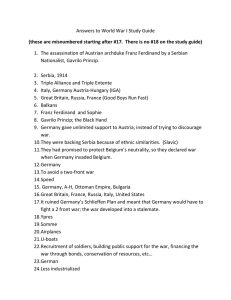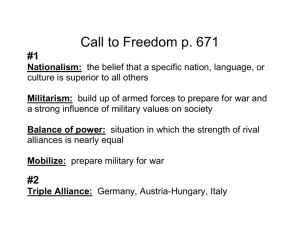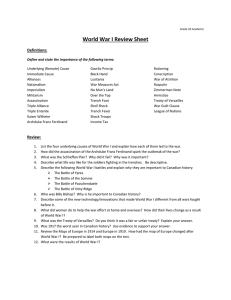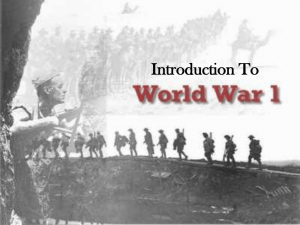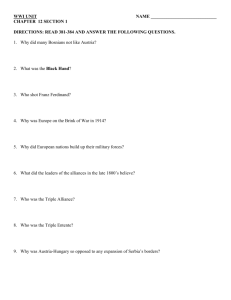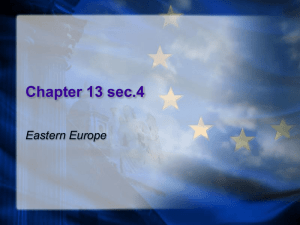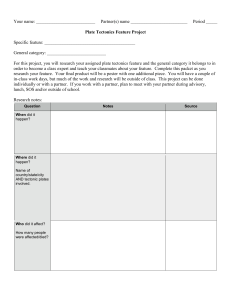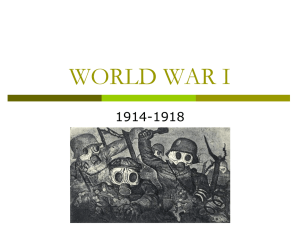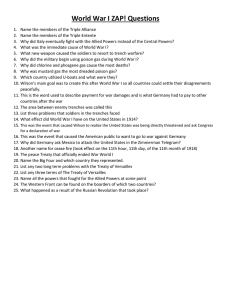Print › World War I | Quizlet | Quizlet
advertisement
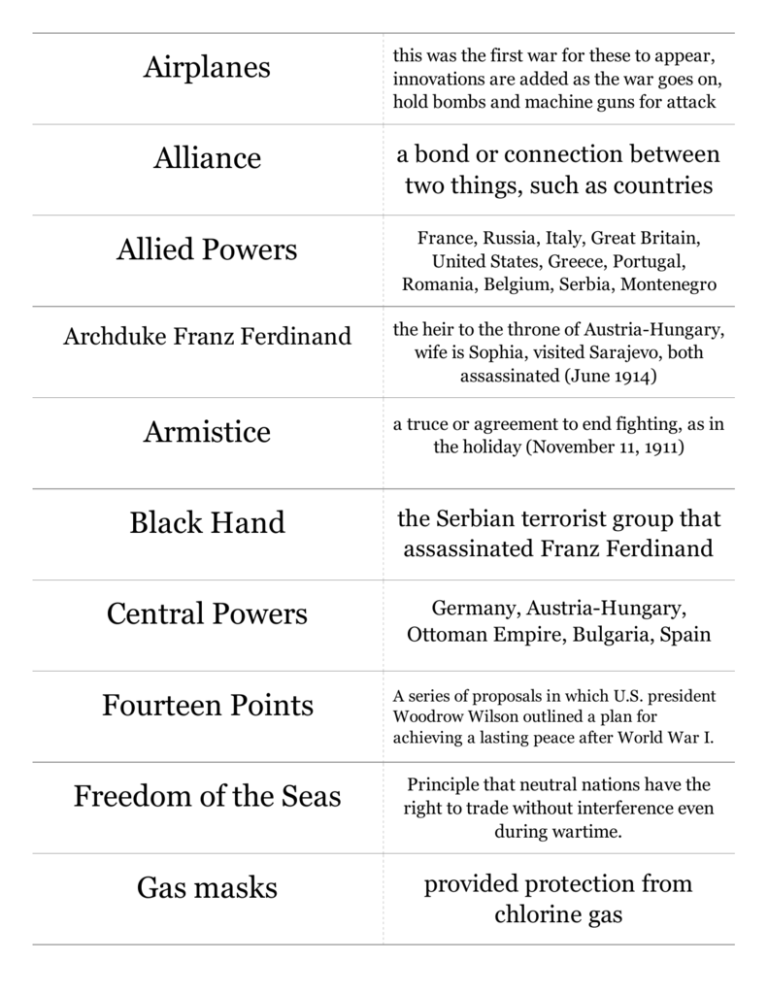
Airplanes this was the first war for these to appear, innovations are added as the war goes on, hold bombs and machine guns for attack Alliance a bond or connection between two things, such as countries Allied Powers France, Russia, Italy, Great Britain, United States, Greece, Portugal, Romania, Belgium, Serbia, Montenegro Archduke Franz Ferdinand the heir to the throne of Austria-Hungary, wife is Sophia, visited Sarajevo, both assassinated (June 1914) Armistice a truce or agreement to end fighting, as in the holiday (November 11, 1911) Black Hand the Serbian terrorist group that assassinated Franz Ferdinand Central Powers Germany, Austria-Hungary, Ottoman Empire, Bulgaria, Spain Fourteen Points A series of proposals in which U.S. president Woodrow Wilson outlined a plan for achieving a lasting peace after World War I. Freedom of the Seas Principle that neutral nations have the right to trade without interference even during wartime. Gas masks provided protection from chlorine gas Imperialism A policy of one country extending its rule over foreign countries Influenza a pandemic of this sickness resulted in the deaths of around 70 million people Kaiser Wilhelm Emperor of Germany during World War I League of Nations An organization of nations formed after World War I to promote cooperation and peace. Lusitania passenger liner sunk by German Uboats, had 100 U.S. passengers on-board Militarism a policy of aggressive military preparedness Mobilization Gathering resources and preparing for war Nationalism a sense of pride and devotion to one's nation Neutral taking no side in a conflict No-man's land the area between opposing trenches, which could strech miles and was often very dangerous Propaganda ideas spread to influence public opinion for or against a cause Rationing A limited portion or allowance of food or goods; limitation of use Reparations As part of the Treaty of Versailles, Germany was ordered to pay fines to the Allies to repay the costs of the war. Opposed by the U.S., it quickly lead to a severe depression in Germany. Self-Determination The ability of a government to determine their own course of their own free will Serbia country seeking independence from Austria, supported by Russia Treaty of Versailles this document ended the war Trench ditches where soldiers could have some protection Trench warfare lines of trenches, ex. the Western Front Uboat German submarine Woodrow Wilson president of the United States, created the League of Nations, had the 14-points Zimmermann telegram A telegram Germany sent to Mexico to convince them to attack the U.S. In exchange, if the Central Powers won, Mexico could regain territory it lost to the U.S. during the 1846 Mexican War.

